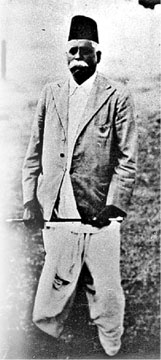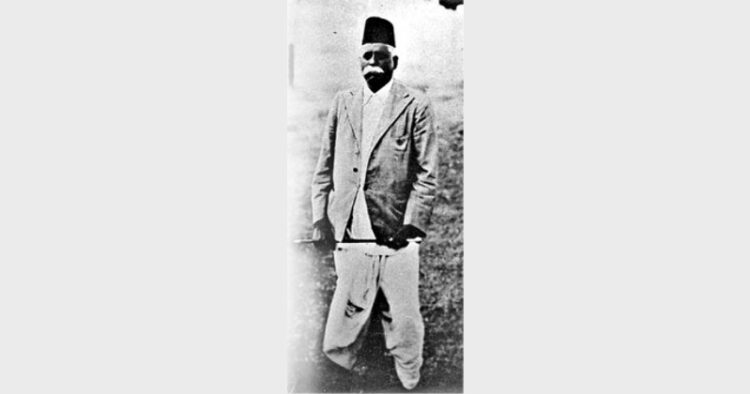
While touching the hundred years of its formation, the RSS hints at taking the vision of Dr K B Hedgewar and gearing up for the more significant social transformation
The founder of Rashtriya Swayamsevak Sangh (RSS), Dr K B Hedgewar once said, “We have not formed RSS to celebrate its anniversaries. We wish to organise Hindu society and free India from the British.” He was a man in a hurry. Even in his disturbed sleep in his last painful days, he was heard murmuring, “We are late… we are not ready yet.” This conversation was of the period when World War II just began and which he saw as the opportunity to free India.
The original pledge of RSS swayamsevaks before Independence included the word, “To work for the freedom of this Hindu Rashtra…”. He was uncompromising on himself and others. A gentleman in Kolkata suggested that the pledge should not have the words,’??? ?? ????? ?? ?? ?? ?????? ????? ??????’. (I will put in all my resources – physical, intellectual and wealth – all through my life), but should be, “To the best of my ability”. To paraphrase his answer, Doctor said, “There can’t be any compromise. It is a full commitment to the nation. No conditions apply.” And he refused to change the pledge.
A middle-aged doctor, who refused to marry or carry out his medical practice; when in Nagpur itself there were just 30 or so doctors began playing with teenage kids. An already established Congress leader, a man who chose to live in poverty to surrender every bit of his life to the nation, chose to start a new organisation with young boys, ready for a long haul. When RSS became a visible power in Nagpur and spread a little in Vidarbha, people took note. A leader once asked him, “But, what will RSS do by organising Hindu society?” He said calmly, “RSS will do nothing…. Swayamsevaks will do everything.”
In these words were the seeds of the grand vision the founder of RSS had. Veteran RSS pracharak, a great unorthodox thinker, Dattopant Thengadi called it “Progressive Unfoldment”. He explained, “A bystander doesn’t understand how the painting will evolve when he sees a painter working on his canvas, but the painter is clear what he is painting. The painter unfolds the painting gradually to the astonishment of the viewer.” Similarly, Dr Hedgewar understood where his work would lead.
We have seen this gradual unfoldment over decades of RSS growth. From teenage boys playing in maidans, to self-sacrificing protectors of persecuted Hindus-Sikhs during partition, to emerging from a bruising battle to retrieve its honour after Gandhiji’s assassination, restarting the work all over again. From there on to spawning of a large number of mass and niche organisations that took RSS view of the national renaissance to the cross-section of the society intensively and extensively; and later to the globe, was the next step. Swayamsevaks of RSS built mass organisations like Akhil Bharatiya Vidyarthi Parishad, Bharatiya Mazdoor Sangh, Vanvasi Kalyan Ashram, remained ideological mentor to Bharatiya Jan Sangh and later Bharatiya Jan Janata Party. Swayamsevaks also built organisations like Vivekananda Kendra, Ekal Vidyalay, Sewa Bharati, Vidya Bharati etc. to create an India centric history, and recently Saksham – to address issues of ‘Divyang’ or specially challenged people. During the last 70 years, we saw a much-reviled organisation moving from fringes and being thrown out by mainstream politics by Nehruvians to being a proponent of Hindutva that became a central pole of political discourse from the fight against Emergency to facilitator of the Ram Mandir movement. It has emerged as the most potent socio-cultural organisation that opponents love to hate. From 1983 onwards, RSS evolved from an organisation to a movement.
While the general impression was that the organisation is moving on the right tracks, came the press conference of RSS general secretary Bhaiyyaji Joshi who announced a new roadmap for RSS for coming 3-4 years that is radically different from what has been done so far. It is no more gradual development of ideas that is the typical RSS style, but an attempt to force the velocity of change.
Indications of changing view about the evolution of RSS came when RSS Sarsanghchaalak Dr Mohan ji Bhagwat released a compilation of survey of 43000 women done by Stree Shakti in collaboration with Rashtra Sevika Samiti and some other volunteer organisations. This survey was across the regions and social strata. Dr Bhagwat said that RSS would help women organisations to form policies and social projects based on the findings of the survey. It was an indication of the changing approach to addressing social issues based on robust data and not on anecdotal experiences of a few. Though the earlier model had served well too, it is possible that the organisational leadership decided to take a different path as society is becoming more complex.
On March 15, the General Secretary informed the press about the massive internal survey RSS has done over months, covering nearly 1.6 million young and middle-aged swayamsevaks. The idea was to find out ways and means of using this power of the people for social reforms. The survey collected simple information about the respondent’s age, education, profession and area of interest in social work or sewa to devise a plan for allocation of work to individuals based on their inclination.
The subjects shortlisted are rural development under five heads – education, health, farming, social harmony and self-reliance. One thousand villages have been identified as proposed model villages, and work has already begun in 300 villages. The sustainable environment is another area of concern which RSS is focusing on water conservation and its availability, reducing the use of plastic and conserve the environment. These are the areas where 1.5 million youth will be trained to work.
Bhaiyya ji Joshi talked about nurturing family system that is the crucial component of India’s heritage, the strength behind its cohesion and secret of its survival as a civilisation. Major sanskaras (value systems) are inherited through the family, and it has a significant role to play in nurturing a healthy society. We must strengthen this institution of the family. There will be specialised training for young families about nurturing Hindu values at home for self and children. It is called ‘Kutumb Prabodhan’ (Educating about family). He observed that RSS is not talking of joint family as that is not possible in the current changed urban scenario. But, he said, we can still stay together, meet together and celebrate together. He disclosed that one hundred thousand youth would be trained for social reforms. One will note that none of the goals of social reforms and development related to one’s faith or religion. It is up to members of our society to take advantage of these and join in to create bigger momentum.
It is no news that RSS’ presence is growing in a sustained manner. Currently, its daily shakhas with weekly and monthly get-togethers have reached 70000 villages and town places. If you consider that 15000 swayamsevaks have gone through gruelling summer training workshops of 3 to 4 weeks – called Sangh Shiksha Varg and about 100,000 attending preliminary training workshops for new entrants who wish to do more in Sangh – you can well imagine the human capital that is being formed painstakingly through person to person contact over last 95 years. It is this vast social capital that RSS wishes to invest in the nation’s future. Further, Bhaiyyaji stressed that RSS would also go for informal training for newcomers as a part of the new strategy for growth and expansion.
RSS is the organisation of individuals who wish to do good work for the society and see Bharat as a prosperous, proud nation. Now, the Sangh is ready to utilise this base to take a quantum leap forward. If it succeeds with the determination of its swayamsevaks and well-wishers, it will bring about unprecedented positive change in our society.
I perceive a sense of urgency in moving the next orbit of social outreach and work for the society the Sarsanghchaalaks from Dr Hedgewar onwards have stressed that RSS should not be an organisation within the society, but an endeavour to organise the entire society. The whole society should be ‘Sanghamay’, that is imbued with the spirit of the Sangh, a collective sense of responsibility. Is it the agenda for the RSS to account for 100 years that Dr Hedgewar didn’t want to celebrate? So, there won’t be any celebrations for the RSS, but a celebration of our national life with proposed improvement in various segments of the society.
(The writer is a senior columnist and author of the books like RSS 360o and Sangh and Swaraj)














Comments